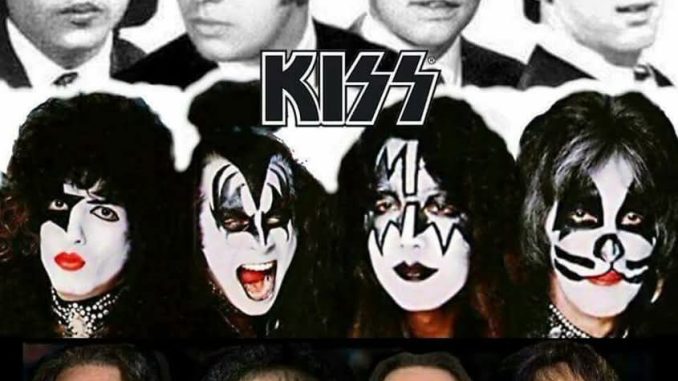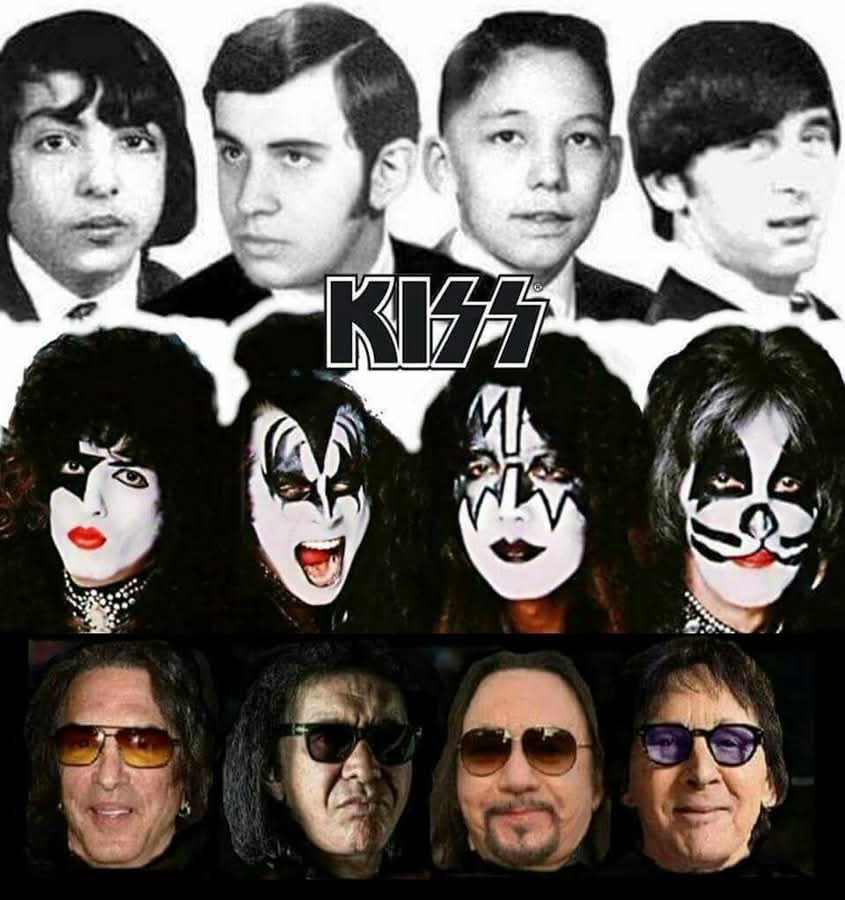
Few rock bands have commanded as much spectacle, or stirred as much controversy, as KISS. Known for their black and white makeup, fire breathing theatrics, and arena filling anthems like “Rock and Roll All Nite” and “Detroit Rock City”.

KISS built a brand as big as their music. But alongside the fame came decades of disputes, scandals, and public debates that made the band as polarizing as they were popular.
The Shock Factor
From their earliest shows in the 1970s, KISS drew criticism from conservative and religious groups who saw their outrageous image as dangerous. The name “KISS” was even rumored to stand for “Knights In Satan’s Service”, an accusation the band repeatedly denied. Paul Stanley once joked, “If we were in service of the devil, we’d have better hotel rooms.” Still, the myth persisted, adding to the band’s rebellious aura.
Merchandising Mayhem
KISS wasn’t just a band, they were a business empire. By the late ’70s, their logo was stamped on everything from lunchboxes to comic books, even KISS-themed coffins. Some critics accused them of selling out, turning music into a merchandising machine. Gene Simmons, never shy about his business instincts, countered by calling it “brand management” before it was trendy.
Band Feuds And Legal Battles
KISS has been no stranger to internal conflict. Founding members Ace Frehley (lead guitar) and Peter Criss (drums) both left the band amid disputes over money, substance abuse, and creative direction. When the band was inducted into the Rock & Roll Hall of Fame in 2014, tensions boiled over again, KISS refused to perform because the Hall only wanted the original lineup, not the later members who kept the band alive.
Makeup And Identity Rights
The band’s trademark makeup designs became a legal minefield. When members left, the right to use their original “characters” (like Frehley’s Spaceman or Criss’s Catman) became contentious. KISS retained ownership, leading to replacements wearing the same designs, something that split fans between loyalty to the originals and acceptance of the new era.
Political And Cultural Backlash
KISS’s provocative stage antics, blood-spitting, pyrotechnics, and sexual bravado, have drawn moral outrage over the decades. In some countries, their shows were banned outright. Simmons’ offstage comments, especially in interviews where he spoke bluntly about politics, women, and money, have also sparked boycotts and public backlash.
The Farewell That Never Ends
KISS announced their “Farewell Tour” in 2000, only to continue touring for decades afterward. Fans accused them of exploiting the concept of “the last show” for ticket sales, while the band argued that the lineup changes and the sheer demand justified extending the brand’s life.
Legacy Despite The Noise
Through it all, KISS has remained one of rock’s most enduring acts, selling over 100 million records worldwide and influencing countless bands. The controversies, whether over money, image, or morality, only cemented their status as rock & roll’s ultimate showmen, proving that in music, sometimes the drama offstage is as big as the fireworks on it.
Leave a Reply